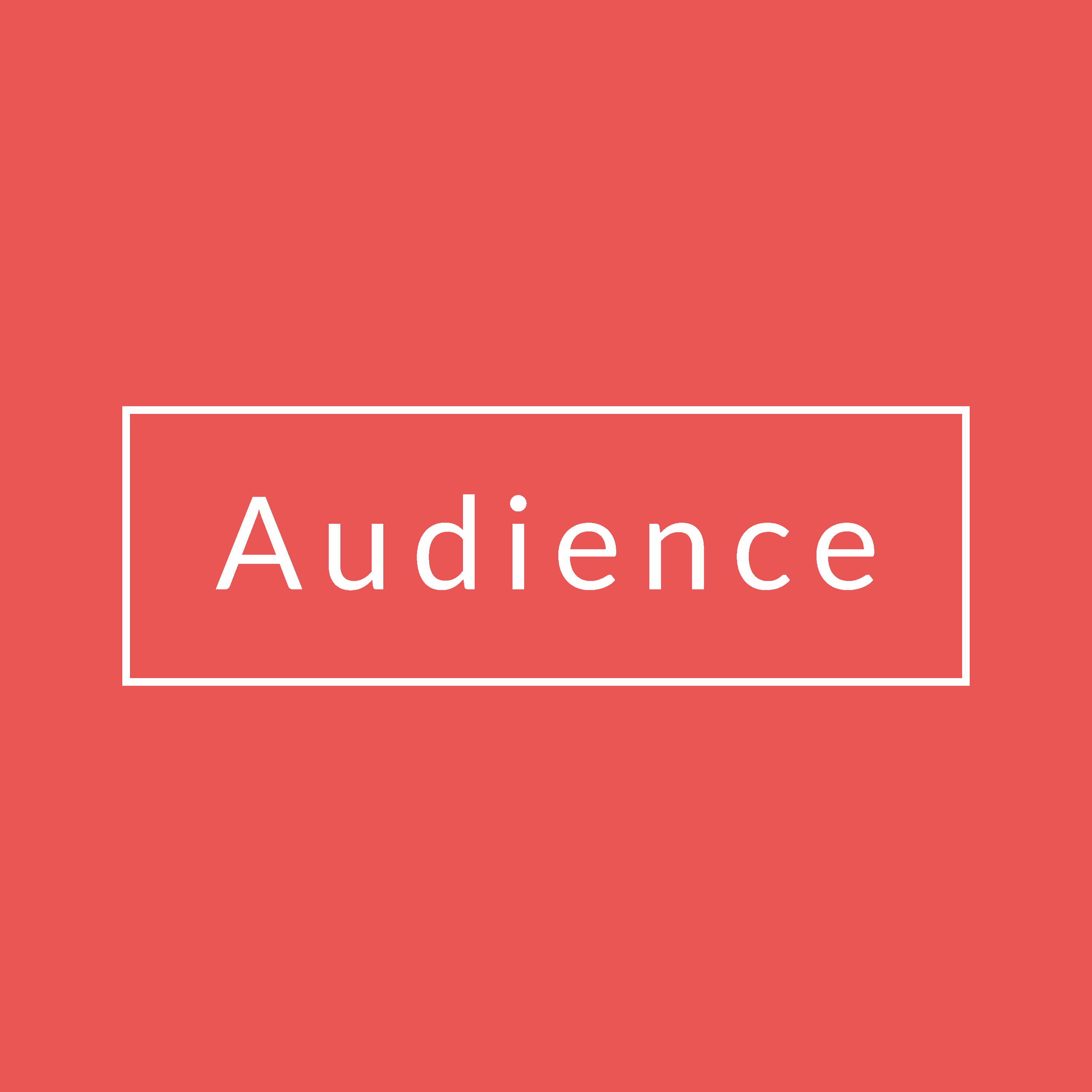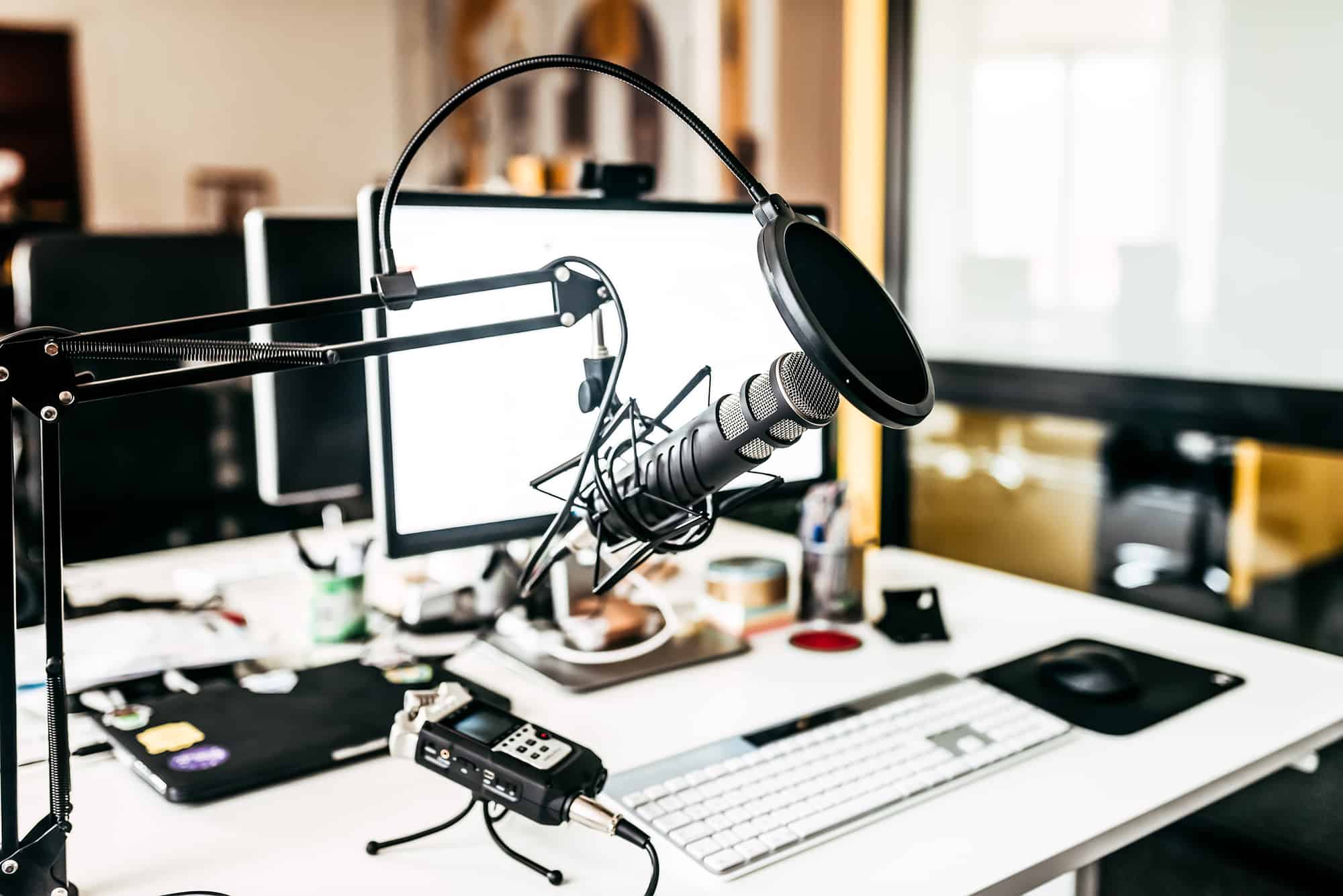Show Notes
These two questions are so essential that we put them into this inaugural episode of Audience.
If you don't have a well thought out and defensible answer for:
- Why you're podcasting
- Who you're podcasting for
Then stop everything else now and let's figure this out.
The answer to these two questions will guide almost all of the creative content decisions that you make with your show. Doing this will give you great alignment between the 3 pillars of a great podcast: what your audience is interested in, and specifically what your message is.
Getting a high degree of alignment between these two will give your listeners the feeling that you're talking DIRECTLY to them. Almost like you had that one person in mind when you created your show....probably because you did.
Episode Transcript
Speaker 1 00:04 Hi there and welcome to the first episode of the audience podcast. I'm your host Craig Hewitt from Castos. Here in the first episode we're going to be talking through two of the really fundamental questions that we as podcasters or any kind of content creators really need to answer before we embark on a new kind of form of content they were going to be creating for our brand. And again, you know, from, from our trailer episode, we're going to use the term brand a lot here because the audience podcast is about building a successful and meeting full podcast for your brand. And a brand can be anything from a business to kind of a side hustle, a church or religious group and a charity or just a hobby. Uh, so, so it's not just for businesses, it's not just for hobbyists, it's the things we're learning here.
Speaker 1 00:49 And the principles apply to everyone. And the foundation of, of a good podcast that's going to make an impact on your brand is, is something that, that reaches the right kind of people in the right way and delivers the right message to them. And so that's what we're going to cover here in this first episode or the questions that we have asked ourselves here at Castillo's to kind of suss out why we're here and why we're doing this, who it's for, and what we're trying to achieve with recording and producing the audience podcast. Because there certainly are always other options that we all have in terms of what kind of content recreate and how we try to kind of further our brand and market our business or whatever. We write a lot of blog content, we have a YouTube channel that's really active, but we feel that podcasting is really the best way that we can share what we're learning and what we know with folks out there that are doing the same thing.
Speaker 1 01:45 And I think for us, the, the consistency between the podcasting medium and talking about podcasting is really clear. But for other folks out there. Well, and I say that because you know, podcasting about podcasting is kind of meta, but we think that we're showing in this podcast not just you know, that we can podcast and that it sounds good and then it's highly produced it, you know, it's obviously live in places like Apple podcasts and Spotify and all these things, but also, you know, the type of content that we're creating here. So it's, so it's really both. We mentioned in the trailer episode that starting a podcast really is not that hard. It's creating a successful podcast and one that has meaning and impact to your brand. That is really an achievement and something that a lot of people never get to. And so I think maybe it's worth putting down some guardrails around what a successful podcast is.
Speaker 1 02:38 And the answer is it'll be different for everybody, but we'll give some kind of maybe rules of thumbs or benchmarks that you could use in terms of analytics to give yourself a quantitative look at what a successful podcast is and when you know you've gotten there. Before we do that, I think it's important to kind of break podcasting and audiences of your podcasts down into a couple of different buckets. We'll start with the most specific one, which I think is first super niche businesses or audiences. And that is, you know, say your a consultancy in Tennessee in the United States catering to, you know, government contracts. Maybe, and this is really specific and kind of bizarre maybe, but you can imagine that the potential audience for this podcast would be much smaller than, you know, this American life or the serial podcast or you know, pick your favorite kind of mass media podcast out there that probably gets hundreds of thousands or millions of downloads.
Speaker 1 03:39 Uh, it, this podcast being successful does not mean the same thing that you know, again, this American life or cereal or a startup needs to get in order to be successful. And so I'll give some benchmarks and these are a little arbitrary, but I think that these are useful in terms of if you are that you know, niche consultancy in Tennessee working with government contracts and you start a podcast. If you have a thousand downloads per episode, then you should consider the podcast to be very successful. Again, it's a little bar arbitrary, but just a kind of order of magnitude benchmark there for what you should be shooting for. Maybe the next kind of broad category I would use is maybe something like this podcast where it's a bit niche but has broad market appeal. A lot of different types of people could listen to it and certainly this podcast is not just for people who we think could be our customers here at cast us.
Speaker 1 04:30 This is for the podcasting community at large but is not for everyone in the world or everyone in the United States. And so when you have a podcast like this, I think that a successful podcast, and really what we're going to use as the benchmark of when we have created a successful podcast is something like 25,000 downloads per episode. When we get to 25,000 downloads per episode, we will know that we will have reached pretty large audience. We will have created really compelling content that people want to share with other people and want to keep listening to every episode. And so that's kind of the benchmark that we're using for the audience podcast here to say, okay, we're working towards this milestone 25,000 downloads an episode. When we get there, we know that we will have been successful, you know, by some measure, but, but that's kind of a quantitative stake in the ground that we're using for our podcast here.
Speaker 1 05:21 And the third kind of general category that I would use is this kind of mass media mass market podcast that that a lot of folks are doing. And this includes all of the, the true crime. It would include any kind of news or politics that really anyone in the world or in the United States or in wherever you live could listen to and the the numbers that you would need to have an impactful podcast here are maybe a little different depending on how mass market and mass media you go in this spectrum. But if you're going for something like a true crime podcasts that literally anyone regardless of religious or political affiliations or perspectives couldn't and would want to listen to, I think you need to be looking at something like a hundred thousand downloads per episode to make it really impactful. So those are kind of the three very general buckets that I put podcasts into, but just wanted to give a couple of analytics milestones for all of us and depending on kind of which bucket you're in and kind of which side of each of those spectrums, your end, this is kind of a a number that you can have in your mind to shoot for.
Speaker 1 06:25 Again, we're not going to get super hung up on analytics here because I think it's not the most important thing. Again, the whole point of this is to create a podcast that's meaningful to your brand. We want to put some numbers around that, but I think that that having a, an impactful podcast is something that you'll know when it happens, but these are some numbers that help us kind of guide our progress along the way. So I think this is a good time to also reflect back on why we're podcasting. We have a lot of other options of types of content that we can create and how we can educate and inform and inspire our audience. Things like blog content, things like social media, things like YouTube channels are all very valid options here at Casios. We do all of those and I think that this is, this is kind of a lesson for a lot of us, is that if you're trying to build a really big and impactful, meaningful brand, you probably need to be engaging in most of these forms of content and of marketing as a way to reach your audience.
Speaker 1 07:23 And the lesson here for us is that some people are podcast listeners and some people are not. Some people like to watch YouTube videos, some people like to just read emails or blog posts. And so I think that allowing your audience to consume your content where and how they like is a a really nice thing for them. But also kind of necessary to say like, okay, I'm creating a podcast but you might not be a podcast list or you might not have a commute every day. You might work from home where listening to podcast is not really convenient, but it's kind of on your lunch break or you know, sitting on the couch watching Netflix, you might want to scroll through a blog post. And so that's why we tried to create a lot of our content in multiple different forms and we certainly create different forms or media of content across the podcasting spectrum.
Speaker 1 08:12 Again, that's kind of our topic that we talk about a lot is podcasting obviously. And so I would kind of challenge and question you as listener, you know, someone who's creating a podcast or already have a podcast and looking to to really further it is what other content are you creating out there and how does maybe your podcast fit in with that other content. And the question here I think is there are types of things that you would talk about subjects maybe within your overall topic that are better suited for podcasts and there are certain things that are better suited for video and there are certain things that are better suited for social media and for blog posts. And the decision is specific to you and your topic. But I think that's a question to ask yourself is if want to create this piece of content, the media and the format that it's in should be specific to that one piece.
Speaker 1 09:01 For us talking through this podcast and having everyone follow along with our journey to build the audience podcast just makes sense in a podcast format because we're going to be talking about this and how we're feeling and what we're learning and what's working and what's not. Sharing our analytics and our progress along the way. And that's just kind of a natural fit for the podcasting and audio medium. Something like a video explaining how to use a feature in your product or showcasing, you know, these unboxing videos, showcasing a new feature for a site that might be like an affiliate site that obviously is a better fit for video. And then something like food bloggers do a lot of video as well because you want to show people either in pictures. So something like Pinterest would work well or Instagram or in videos on YouTube to show people how you're cooking this thing.
Speaker 1 09:50 And then the last one is something like a case study really is probably best matched for written content and your blog. So I think that when you're looking at creating a particular type of content, think about which media, which format. It's best delivered in and best consumed by your audience. And again, so our podcast here is a story really and it's a story of us starting a podcast from scratch from zero listeners and building it up to, you know, we use this benchmark before like 25,000 listeners per episode is our goal and that's the point where we think we'll have a successful podcast. Doing that and sharing this story in audio content in the form of a podcast is the best fit for us for this project. We do a bunch of other stuff at Costos in terms of content and we make the decision on which content media best fits the piece we want to create and we create it in that media.
Speaker 1 10:39 So I think the same question should be asked of yourselves when you're creating new content and then kind of tailor that content format decision to the type of piece that you're creating. And I think a big part of this is obviously knowing your audience too. If your audience is podcast listeners, then maybe you would tend towards making more podcasts type of content. If your audience is definitely not audio listeners or audio learners, then you might not create as much podcast content. You might sway more towards the blog post or the email or the social media. Again, it's a lot of the, the type of content that you're creating and how your audience typically likes to consume that content or that type of content. And then the second question that we ask ourselves around kind of why we're podcasting is who we're podcasting for. So we ask ourselves why we're here.
Speaker 1 11:26 What we're doing here with the audience podcast, and a really important question is who is this podcast for? And if you haven't asked yourself that question and gone through this exercise of creating a unique listener avatar for your show, you need to do it. Don't record another episode until you've done this because doing this exercise and listing out exactly who your ideal audience member is will inform a lot of the creative and content decisions that you make going forward and creating compelling and interesting content for your podcast. A few things to think about when you're creating this listener avatar are things like other demographics. So where do they live? What do they do for a living? Maybe things like age and gender as well. Are they married, are they not? Did they have kids or do they not? But then things like what are they interested in?
Speaker 1 12:15 What are their pains? What are things that they wish they had in their lives and are kind of longing for? What are things they're really grateful for and, and kinda cherish and celebrate in their lives? When you define these kind of handful or dozen points, you'll start getting a really clear picture of an exact specific one person that is your podcast listener. And with this you'll be able to ask yourself, okay, you know, Pete, the podcast listener maybe, or you know, you call the person whatever you want, you know, Pete, the podcast listener. Well what is Pete like? What is he struggling with in his life that I can help him with in terms of inspiration or education? What is he interested in, what challenges does he have in his work life or social life? And once you really defined on this one unique listener avatar, you'll be able to really easily say, okay, I want to create a, I'll use our show as an example.
Speaker 1 13:11 Again, this show is really kind of a Petri dish of the whole kind of podcasting experience. So let's take the audience podcast as an example. Who is this podcast for? This podcast is for people who want to start a podcast or who have already started one but aren't happy with the success of it and the impact that it's making on their brand. So these people are typically some form of content creators that have some kind of brand or cause that they're already involved in. Again, we use the term brand to include anything from a religious organization to a hobby, to a side hustle, to a business or you know, an entrepreneurial project. It can be anything along those lines. So this fits into really, it should, it should apply to any podcaster but, but if they have to have a thing, they're podcasting for favorite sports team is maybe another good example.
Speaker 1 14:02 And so we think about a lot of the things that podcasters, in our case that's our listener avatar kind of focus group things that podcasters like, things that they have troubles with and that they are interested in. And we can tell from our Facebook group, and we have a Facebook group here at Castillo's called podcast hackers, that the thing that everybody that has a podcast wants to do more and better of is to have a bigger audience. And I think that this is the reason that we created the podcast like we're doing, is to say we want to do a podcast that's really a live test experiment on how to grow an audience. So our ideal listener is podcasters, existing podcasters, people that want to start a podcast, even who their main focus is growing a bigger and more engaged and more meaningful audience for their brand.
Speaker 1 14:55 With that unique listener avatar in mind, we then are able to make really easy kind of content decisions about what we want to talk about in the podcast here and what we don't want to talk about. So with our listener avatar in mind, we're going to talk pretty specifically about podcasting. This is not a kind of how to start a podcast podcast because we're going to talk through that in this episode and in the next one. And then from there it's going to be all about growing an audience. So in terms of the things we talk about, it's not going to be, you know, 18 reviews on podcasting microphones because we have two recommendations there and we're going to go through those in the next episode and we're going to move on because it turns out the microphone is not going to make the podcast.
Speaker 1 15:36 The content and the engagement with your audience is what makes your podcast also, you know, we know what podcasters, our target audience, podcasters or aspiring podcasters want is to grow an audience. It's their pain and it's their desire. So we're going to talk a lot about all different forms of growing an audience. And we're gonna talk about things from, you know, organic acquisition. So SEO, email marketing, content, repurposing, all the way to paid acquisition, Facebook, overcast Cora may be. And so, you know, we're going to explore all those different avenues. What's the most cost effective, what's the most impactful, and has the best alignment between our brand, the podcasters that we want to, and what has the best alignment between our brand, the podcasters that we want to listen to this show. And then the kind of full circle of that back to our message.
Speaker 1 16:28 And those are really the three pillars of acquiring meaningful listeners, is you want people coming to listen to your show, who care about your message that are aligned with your brand. And those three things should be aligned very tightly for you to have a successful podcast. So we'll include a link in the show notes to this episode. If you go to dot com slash podcast we have a worksheet that talks through all of the steps that we've kind of gone through here verbally to build your ideal listener avatar. It's super important in there as well is a worksheet for you to download and work through in terms of defining exactly why you're podcasting and then the listener avatar part is who you're podcasting for. I mentioned in here are our Facebook group as well. If you have questions or comments about this episode, we'd love to hear from you.
Speaker 1 17:12 Please drop a comment in the post for this episode. So again, go to dot com slash podcast so we'd love to hear your experiences and things that you've learned along the way of kind of defining why you're podcasting and who you're podcasting for. I think this is a fundamental question is why this is the first episode of our podcast here is you have to get this right, and there's no sense in doing any of the other stuff of gear and RSS feeds and hosts and set up and Apple podcasts and Spotify if you don't have this down. And if you don't get this right from the beginning. So that's why we put this first. We'd love to hear your experiences with defining your ideal listener and your listener avatar, as well as the why of why you're podcasting. Drop a comment in the post for this episode. Go to dot com slash podcast and drop a comment and about your experiences with going through this process, which you learned along the way, both the good and the bad. We're sharing the good and the bad here on our show, so we'd love to hear from you and the things that you've learned along the way as well.





